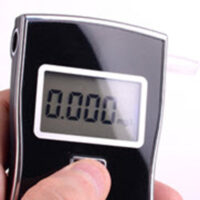Breathalyzer Tests – Though Often Inaccurate – Are Still Placing Drivers in Prison

The New York Times recently ran an important investigatory article on alcohol breath tests, and just how precarious and unreliable they are. Still, in our criminal justice system, they are the devices that will ultimately determine whether someone goes to prison for a DUI.
Although these devices are marketed as precise, they generate alarmingly skewed results such that a number of judges around the country have recently had to throw out more than 30,000 tests and acquit some who were arrested and charged with drunk driving – just within the last year largely due to lax oversight and human errors – in what turned into one of the largest exclusions of forensic evidence in the history of the country.
What Causes Inaccurate Results?
A number of factors lead to these machines yielding false results, including:
- Machines being improperly calibrated, causing them to yield results that were 40 percent too high;
- Police departments that fail to properly maintain the machines;
- Lab officials that use questionable chemical solutions that lead to false results;
- Serious programming mistakes in the software that the machines rely on; and
- States disabling safeguards designed to enhance accuracy.
How Do They Work?
Both hand-held devices used on the road (such as the “Alco-Sensor IV”), whose results are not admissible in court due to how unreliable they are, and larger machines used at the police stations (such as the “Alcotest 9510”), whose results are admissible in court, are designed in similar ways. They contain fuel cells that react to the presence of alcohol and generate electric currents based on how much is present. However, it is widely acknowledged that using items such as mouthwash or breath mints can throw off the results of the hand-held devices. Still, although their results are inadmissible, they trigger the initial arrest, which leads to the next test at the police station, where the results are admissible and can ultimately lead to charges and convictions.
Lack of Transparency & Too Much Deference to States
For years, criminal defense attorneys have been trying to obtain information about the software behind these machines; in particular, the codes that they are based on; in order to determine where the flaws are. While most courts – including those in New York – have rejected these attempts, in 2007, the New Jersey Supreme Court allowed outside experts to analyze software for one such machine, the Alcotest 7110, and the results revealed thousands of programming errors. While companies claimed that they fixed the problems, it is up to states to roll out the software updates, which they often fail to do.
In fact, it is the states that determine how it will test machines, and what it deems reliable. While one state may determine that a machine is inaccurate and unreliable, that same device will be regularly used in another state, and soon deployed in others.
Questions surrounding the accuracy of these devices are not just coming from criminal defense attorneys: Judges themselves have described some of these instruments as “magic black boxes” that display “significant and continued anomalies.” And yet, every state punishes individuals who refuse to take them if a police officer orders it. Although the only way to measure how many grams of alcohol per 100 milliliters of blood are present is to draw blood, this requires a warrant, leading police departments around the country to, instead, rely on breath tests, even though they are unreliable.
Contact Our Criminal Defense DUI Attorneys with Any Questions
If you were arrested for driving while intoxicated in New York, contact our experienced NYC criminal attorneys at the office of Mark I. Cohen, Esq. in order to ensure that you are not wrongfully convicted based on inaccurate test results.
Resource:
nytimes.com/2019/11/03/business/drunk-driving-breathalyzer.html
